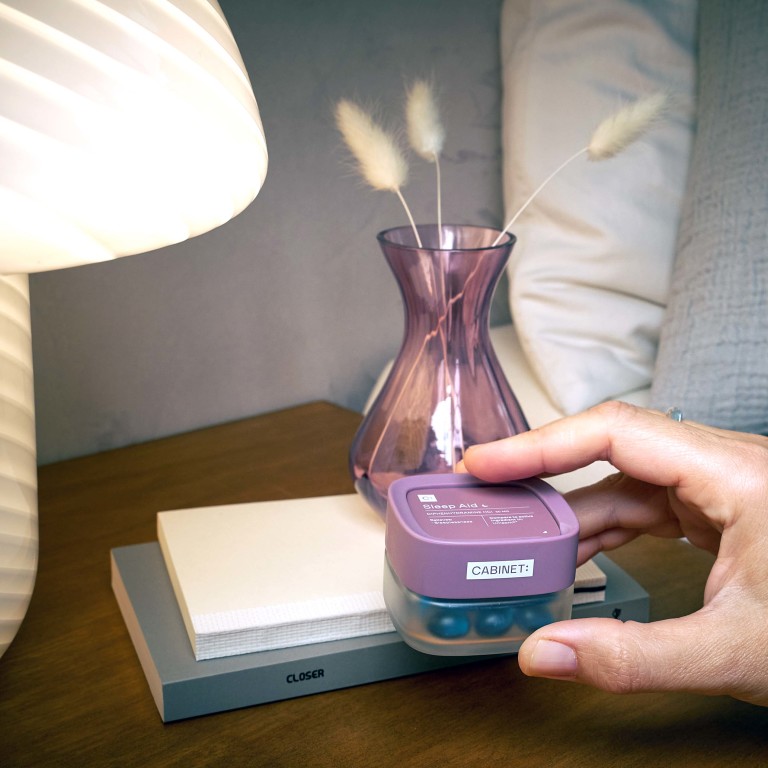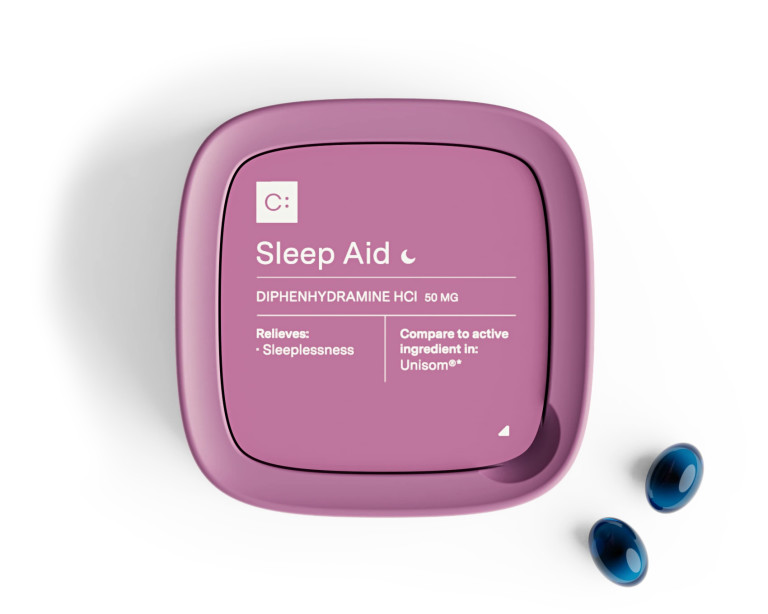Unisom is a popular over-the-counter (OTC) sleep aid that is used to help relieve insomnia and improve sleep quality. Unisom comes in SleepTabs, SleepGels, and SleepMelts. It's important to note that that while SleepGels and SleepMelts contain diphenhydramine HCl as the active ingredient, Unisom SleepTabs contain doxylamine succinate as the active ingredient. Diphenhydramine and doxylamine both work in similar ways, but this article will focus on Unisom SleepGels and SleepMelts.
The active ingredient in both Unisom SleepGels and SleepMelts is diphenhydramine HCl, which is an antihistamine that works by blocking the action of a chemical in the brain called histamine. Histamine is responsible for promoting wakefulness, so by blocking its action, diphenhydramine HCl can help people to fall asleep more easily and stay asleep for longer.
How Does Unisom Work?
Diphenhydramine enters the bloodstream and binds to histamine receptors in the brain. By binding to these receptors, Unisom blocks the action of histamine and causes a sedative effect. This sedative effect can help to promote sleep by reducing the time it takes to fall asleep and increasing the amount of time spent in deep sleep.
As mentioned above, Unisom containing diphenhydramine is available in a soft gel and dissolvable tablet. It's recommended to take the pill around 30 minutes before bedtime. The usual dose is one pill as needed for sleep. it's important to follow the dosing instructions on the package and not to exceed the recommended dose.
It's not recommended to use Unisom for an extended period of time, as it can lead to dependency and cause rebound insomnia, making it difficult to sleeping again once the medication is stopped.
Unisom shouldn't be used for chronic sleep problems. If you struggle with persistent sleep issues, speak with your doctor before using sleep aids. This product can be an ideal for:
jet lag or traveling
sleep disturbances from cold symptoms
occasional sleepless nights or middle of the night awakenings
What Are The Side Effects of Unisom?
Unisom may cause side effects such as drowsiness, dizziness, dry mouth, and stomach upset. It's recommended to avoid taking this drug with other sedatives or tranquilizers, unless otherwise told by your doctor.
It's also important to note that Unisom shouldn't be used as a substitute for a healthy sleep routine. A healthy sleep routine involves adopting good sleep hygiene practices, which include:
maintaining a consistent sleep schedule
avoiding caffeine in the evenings
avoiding use of electronics before bedtime
creating a relaxing nighttime routine
If you have any questions or concerns about Unisom, be sure to talk to your doctor or a pharmacist. They can provide you with the personalized guidance and advice you need to use this supplement safely and effectively.
To summarize, Unisom, is a commonly used OTC sleep aid that's used to help relieve insomnia and improve sleep quality. It works by blocking the action of histamine and causes a sedative effect which can help to promote sleep by reducing the time it takes to fall asleep and increasing the amount of time spent in deep sleep. It's important to follow the dosing instructions on the package and not to exceed the recommended dose.
What’s Next?
Looking to explore another melatonin brand? Cabinet Sleep Aid is a great alternative to Unisom SleepGels and SleepMelts. In fact, medicines from Cabinet Health are:
Curated by Experts: Physicians and pharmacists worked together to provide you with common products you may need. These products are among the best of what’s out there.
Rigorously Tested: All of our factories are FDA-audited, ensuring world-class manufacturing processes and healthy sourcing. After leaving our factories, your medicine goes straight to a Valisure laboratory where each batch is tested for purity, safety (safe from carcinogens and impurities), and gluten (medicines are gluten-free). Believe it or not, this is not a common practice in healthcare!
Better for the Environment: Cabinet has developed the first, and only, non-plastic packaging in pharmaceuticals to address the 194 billion single-use plastic bottles produced by the industry each year. In addition to sustainability in packaging, we invest in plastic offsetting for any plastic still produced in our supply chain, while also providing carbon neutral shipping for all of our customers.










